Paul Emil von Lettow-Vorbeck
(1870 – 1964)
The Lion of Africa — the gentleman guerrilla who refused to surrender a war that wouldn’t stop dying.
“They told me to surrender Africa. I told them I didn’t have the paperwork.”
— Paul von Lettow-Vorbeck, probably
The jungle doesn’t care about your empire. It doesn’t salute the Kaiser’s flag or bow before the Union Jack. It eats both with the same damp, fungal enthusiasm. In 1914, while Europe was busy turning itself into a graveyard for poets, Africa became the forgotten battleground—where men in wool uniforms and brass buttons learned what it meant to fight God’s most humid war.
And somewhere in the middle of that steaming nightmare marched Paul Emil von Lettow-Vorbeck—Germany’s most polite bastard of the First World War, the man who refused to lose even when his country didn’t exist anymore.
He arrived in East Africa like a Prussian ghost: neat moustache, iron discipline, and a set of manners sharpened enough to bayonet the sun. His mission was hopeless from the start. Berlin had handed him about 3,000 colonial troops, a few dozen German officers, and a continent-sized jungle crawling with lions, dysentery, and enemies in every direction. His orders were simple—hold the colony. His reply was simpler—no.
Instead, Lettow decided to tie down the British Empire itself. He didn’t care about the colony; he cared about the scoreboard.
The Gentleman Bastard
Born in 1870, von Lettow was a Prussian officer cut from the last roll of imperial arrogance. He’d fought in China during the Boxer Rebellion, in German Southwest Africa during the Herero genocide, and learned the two great lessons of colonial warfare: never underestimate guerrillas, and never run out of quinine.
When World War I broke out, he was stationed in what is now Tanzania—back then, a chunk of tropical real estate labeled German East Africa. He could’ve sat quietly, guarded a few ports, and waited for the inevitable telegram telling him the game was over. Instead, he pulled on his field boots and declared a personal war against the British Empire.
He wasn’t defending a colony anymore; he was auditioning for legend.
Lettow’s army—if you could call it that—was a Frankenstein of Africans and Europeans, Germans and Askari soldiers, Arab riflemen and local scouts. They spoke half a dozen languages, sweated through six uniforms, and somehow followed this blond lunatic through mud, jungle, and mosquito hell for four straight years. He trained them like Prussians but fed them like refugees.
And he paid them the same. That’s the miracle: his Askari troops—black Africans serving under the German flag—stayed loyal until the bitter end. Not because they loved Germany (most didn’t even know where that was), but because von Lettow led from the front, ate the same moldy rations, and treated them like soldiers instead of servants.
In a world where racism was as standard as rations, that counted for something. Even his enemies admitted it. A British officer once called him “the only German gentleman of the war.” Another called him “a magnificent bastard.” Both were right.
The Bush War to End All Wars
By 1915, British forces had poured into East Africa like an overconfident flood. They came with thousands of troops from India, South Africa, and Britain proper. Lettow had maybe 15,000 men at his peak—including carriers who hauled their supplies on bleeding shoulders through 100-degree heat.
He didn’t fight the way Europeans were supposed to. No trenches, no glorious charges. Instead, he turned East Africa into the Kaiser’s Vietnam decades early: ambushes, hit-and-run raids, supply line sabotage, and a merciless cat-and-mouse campaign that made every British advance feel like walking into quicksand.
He would appear out of nowhere, strike a column, seize their ammo, and vanish back into the trees. A few weeks later, he’d do it again—somewhere hundreds of miles away.
At Tanga in 1914, he pulled off his masterpiece: 8,000 British troops attacked a tiny German garrison and got shredded by machine-gun fire and bees—literal bees, disturbed from hives during the battle, who decided to attack both sides impartially but stung the British worse. The Brits retreated, humiliated, their officers swatting bees and Germans alike. Lettow became the myth of the mosquito coast—the phantom general who couldn’t die.
The British sent more men. He kept outsmarting them. They sent South Africans under Jan Smuts (yes, that Smuts). He beat them too. They brought planes, armored cars, even Belgian forces from the Congo. Lettow just marched deeper inland, stripping supply depots, torching rails, living off the land, dragging his army through hell and malaria and back again.
They called it the “war of the fleas”—and he was the flea with the monocle.
Marching Past Surrender
By 1917, Europe had already chewed through its youth. The Somme was a mud pit, Verdun a mass grave, and back home the Kaiser’s empire was cracking. Nobody bothered to tell Lettow.
He kept fighting. When German East Africa finally fell, he didn’t surrender. He just crossed the border into Portuguese Mozambique, stole their guns, and kept going. Imagine the Portuguese commander’s face when a sunburned German colonel appeared out of the jungle, asked politely for ammunition, and then took the whole damn fort.
By the end, his “army” was a wandering ghost column—maybe 2,000 men, starving, half-barefoot, still carrying a Kaiser’s flag nobody in Berlin could see anymore.
In November 1918, after Germany’s capitulation, Lettow was still marching—unbeaten, unfed, uninvited to reality. A British officer finally caught up to him in Northern Rhodesia with the news:
“Germany has surrendered.”
Lettow blinked, cleaned his spectacles, and asked to see it in writing.
He then formally surrendered to the British at Abercorn on November 25, 1918—two weeks after the Armistice. His men stacked their rifles, saluted, and reportedly sang. No one had beaten them. The war had simply expired.
He was the only German commander in the entire war to invade Allied territory and never be defeated. That’s not heroism—it’s bureaucratic insanity wrapped in charisma.
The Emperor Without an Empire
When Lettow returned to Germany, he expected applause. He got poverty. The empire he’d fought for was dead, the Kaiser gone, the republic broke. Crowds greeted him as a national hero anyway—the last undefeated German, the “Lion of Africa.”
He didn’t have an army anymore, but he had myth. Veterans followed him into political rallies. The right wing adored him as a symbol of the “stab in the back” legend—that poisonous fantasy that Germany hadn’t lost on the battlefield but had been betrayed at home by politicians, Jews, and socialists. Lettow flirted with politics, even led a brief anti-Weimar rebellion that went nowhere.
He was too disciplined for fascism, too proud for democracy, and too nostalgic for reality. When Hitler came knocking later, Lettow politely told him to go to hell. The Nazis offered him a position; he refused. They offered him money; he refused that too. Hitler banned his book from circulation. The jungle general out-Prussianed the Führer.
The Long Shadow of Loyalty
He spent the rest of his life poor, living off his memoirs and the kindness of former enemies. The British—yes, the same British who spent four years trying to catch him—ended up paying him a pension so he could eat. Smuts, his old adversary, personally arranged it.
When he died in 1964 at the age of ninety-four, the West German government sent full military honors. They buried him beside his wife in Hamburg, and his old Askari soldiers—now elderly men in threadbare uniforms—sent a wreath from Africa with a note that simply read:
He was our leader.
Some of them couldn’t read or write German. But they remembered him. When a German delegation visited Tanzania decades later, a few surviving Askari veterans still stood to attention when they heard his name. They didn’t salute the Kaiser. They saluted Lettow.
The Legend and the Lie
History has a cruel sense of humor. Lettow’s legend was built on loyalty, endurance, and honor in a war that had none of those things. He tied down a quarter million Allied troops for years and made them spend millions of pounds chasing him through mosquito-infested death swamps. Strategically? It changed nothing. Germany still lost.
But narratively? He became the heroic exception—a colonial warrior saint in a lost cause. The fact that his campaign left tens of thousands of African porters dead of exhaustion and disease rarely made the footnotes. War looks cleaner when you don’t count the bodies carrying your bullets.
Lettow wasn’t evil, but he wasn’t innocent either. He played the only hand he had, and he played it so well that everyone forgot to ask who paid for the cards.
When the empire vanished, he carried on marching. When ideology tried to claim him, he marched away. When death came, he marched into legend.
He fought a world war with mosquitoes for allies, starvation for strategy, and loyalty for a weapon—and somehow, in the end, the bastard won the moral high ground.
Because sometimes the only thing tougher than losing a war is refusing to admit it ever ended.
Warrior Rank 185
Sources (Mostly Serious, Some Possibly Hallucinated)
Byron Farwell, The Great War in Africa: 1914–1918 (W.W. Norton, 1989).
Edward Paice, Tip and Run: The Untold Tragedy of the Great War in Africa (Weidenfeld & Nicolson, 2007).
Paul von Lettow-Vorbeck, My Reminiscences of East Africa (London: Hurst & Blackett, 1919).
Hew Strachan, The First World War in Africa (Oxford University Press, 2004).
“Jungle Logistics and Other Ways to Die,” Imperial Idiots Quarterly, vol. 2, no. 3 (Totally Not Peer Reviewed, 2020).
The British Bee-Keeper’s Journal, November 1914 issue (for the Battle of Tanga’s most underrated combatants).
Jan Smuts, “Memoirs of a Man Who Couldn’t Catch One German,” unpublished grumble (probably).
German Federal Archives, photo series Askari und ihre Hauptmann, 1917–18.
Peter H. Wilson, The Holy Roman Empire: A Thousand Years of Europe’s History (for background on why Prussians can’t relax).
“How to Lose a War but Win a Movie Plot,” History Channel 3 a.m. Edition.

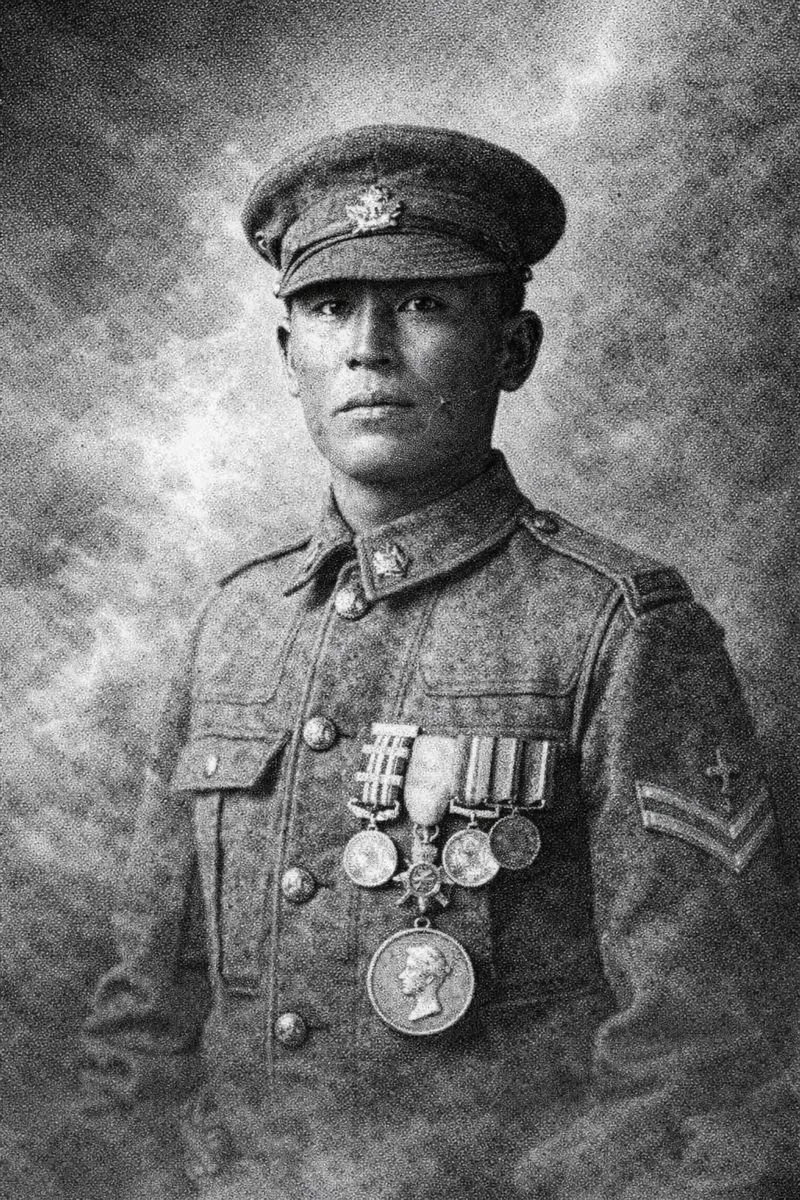
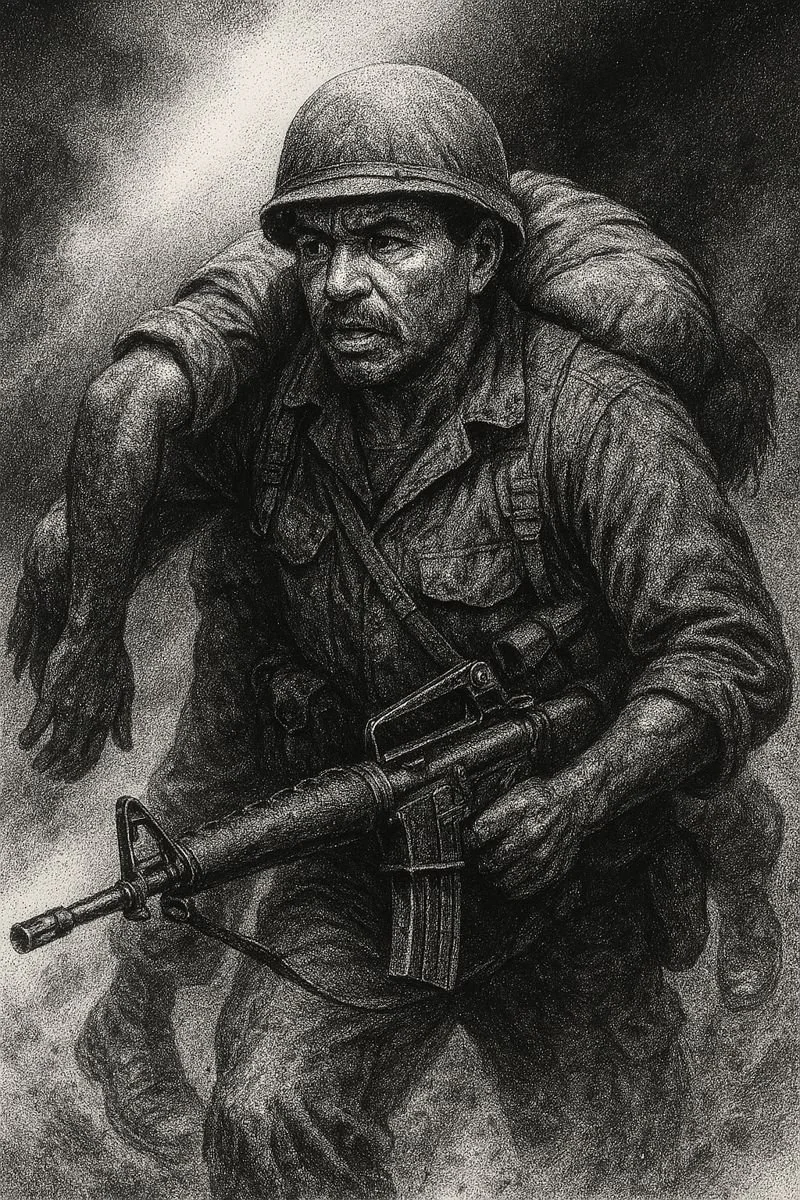
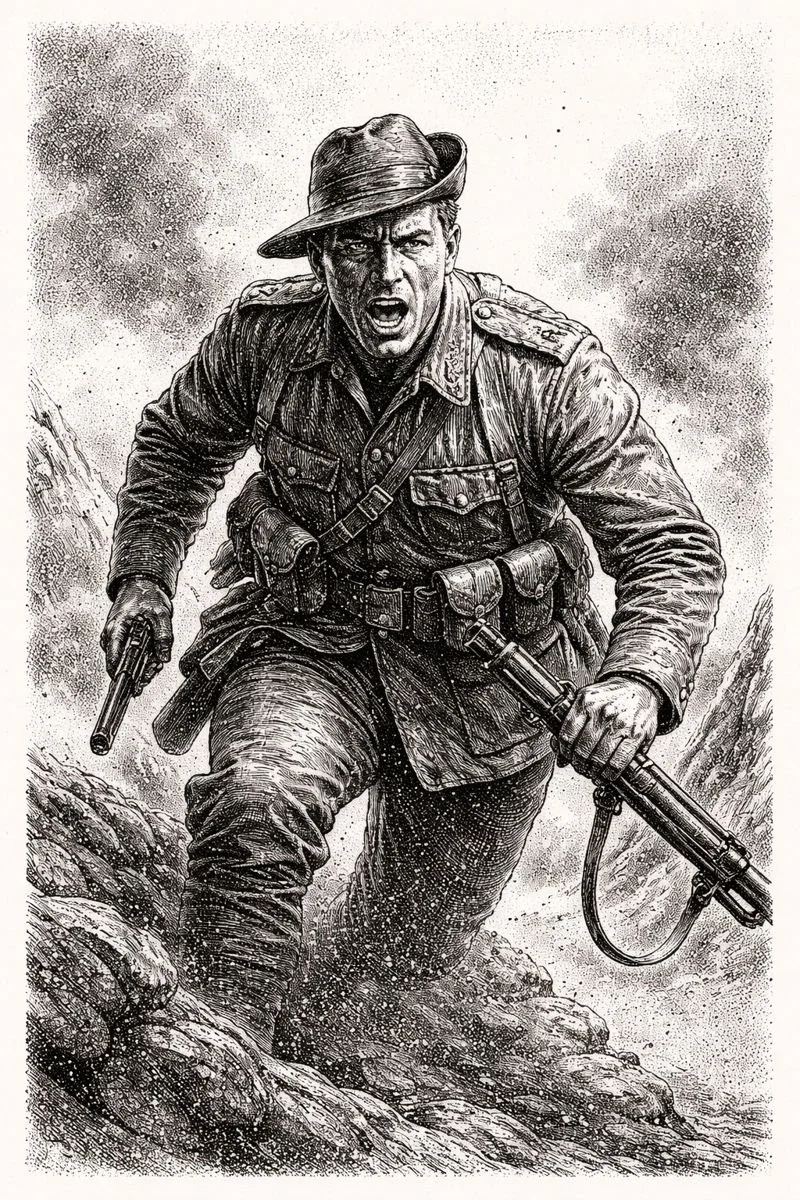
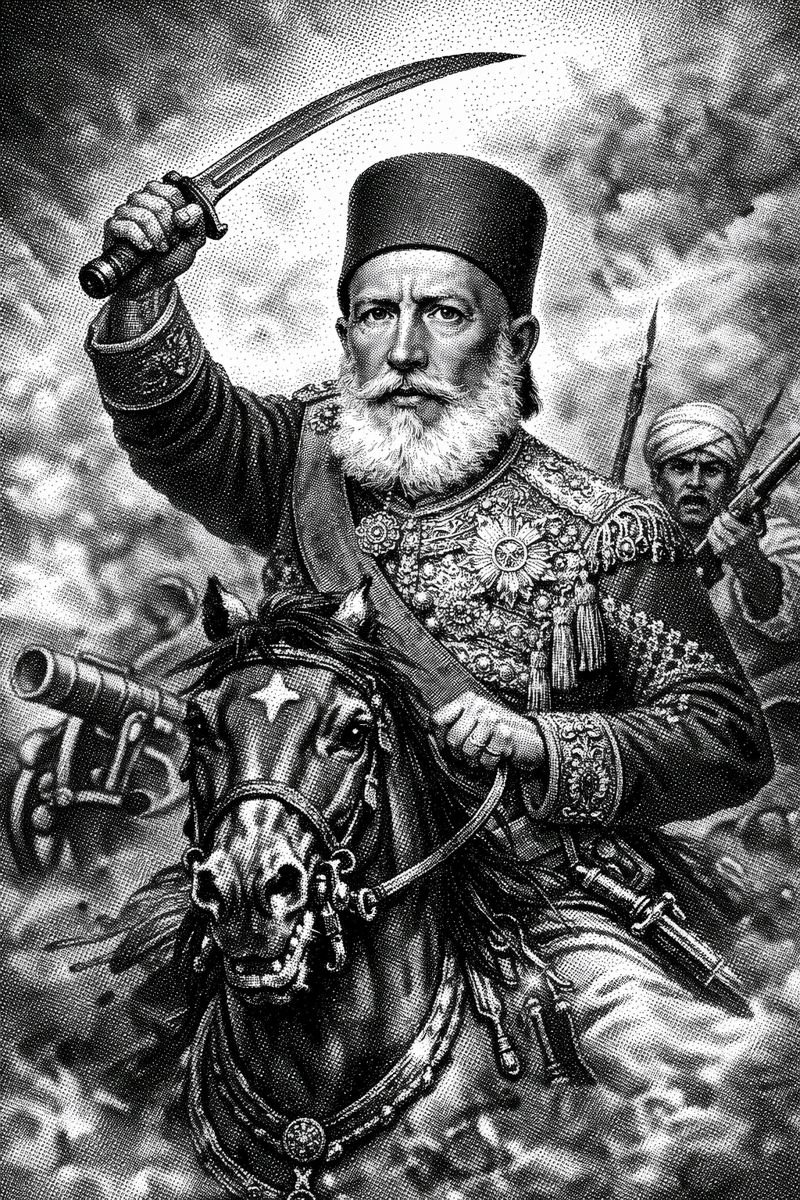
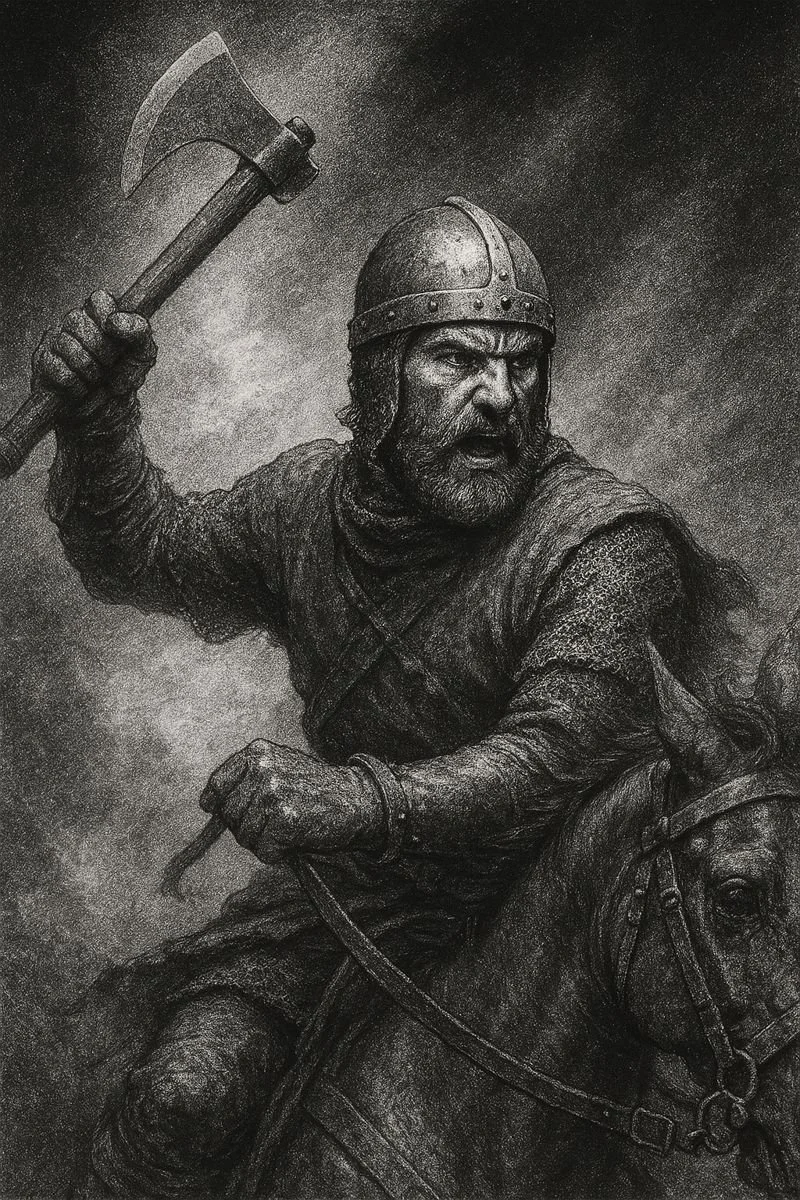
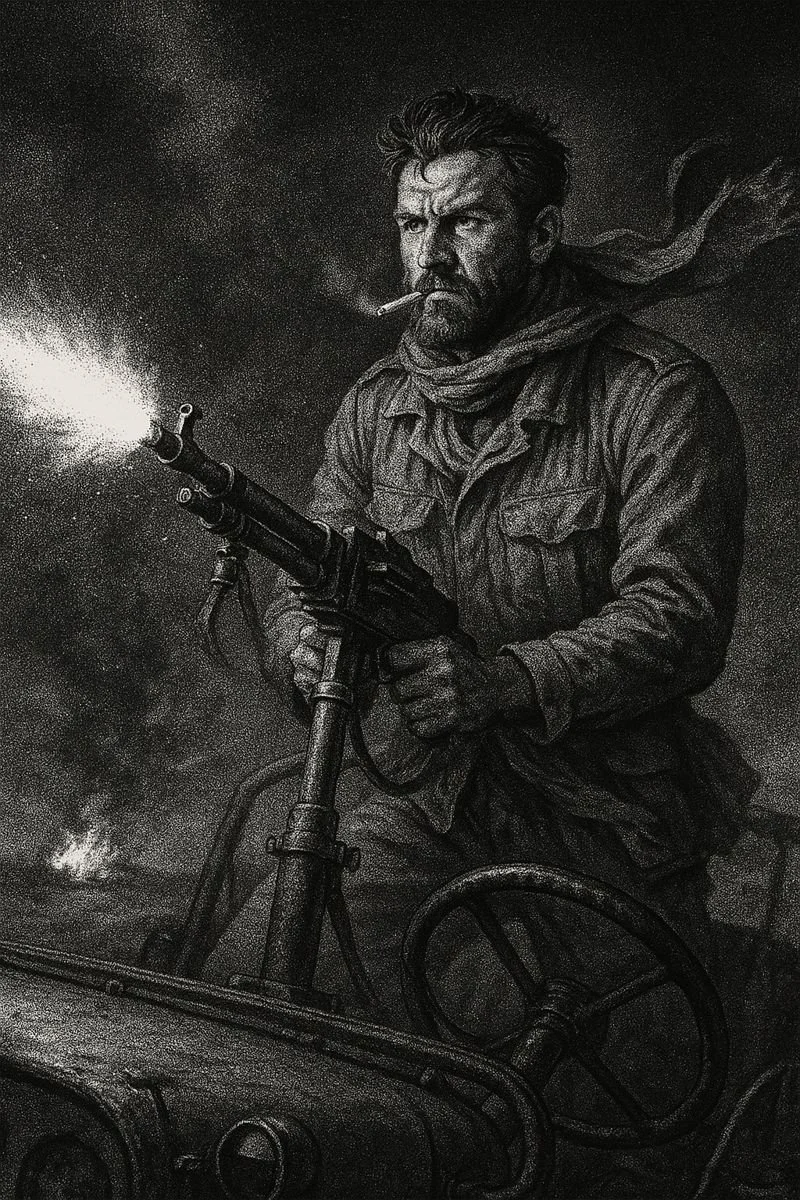
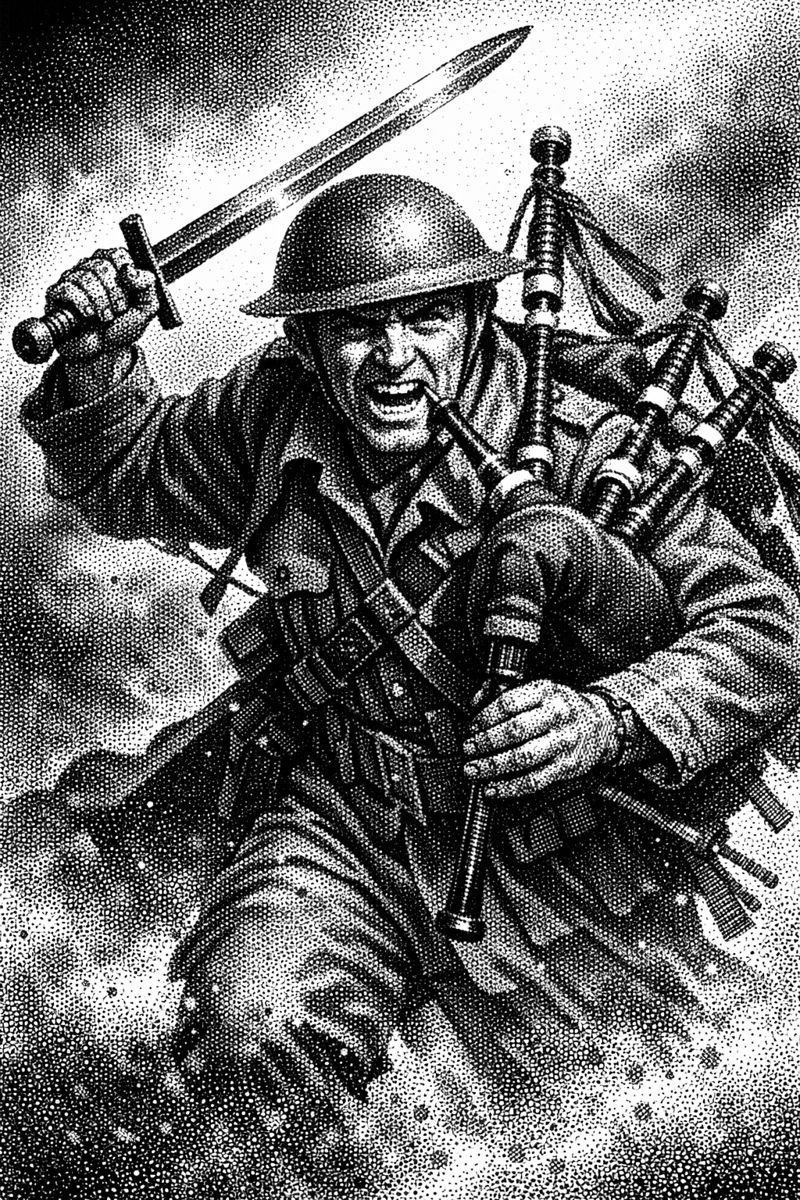
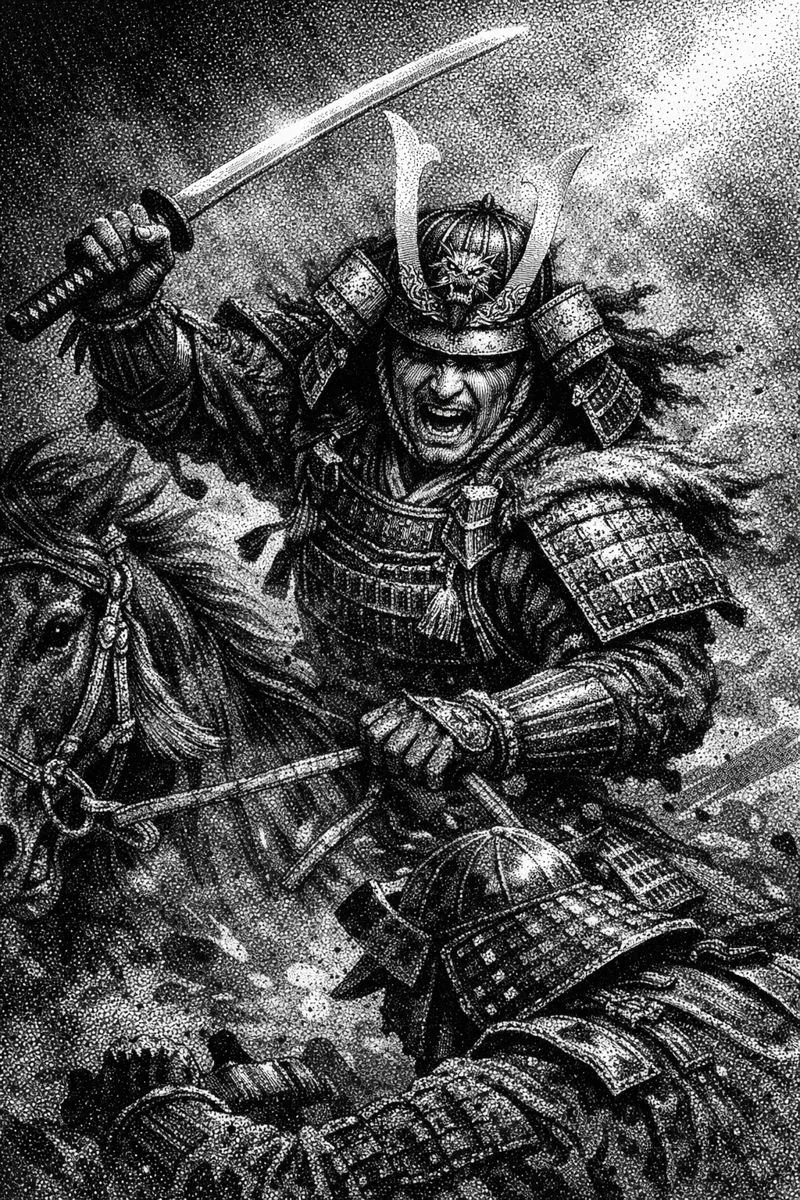

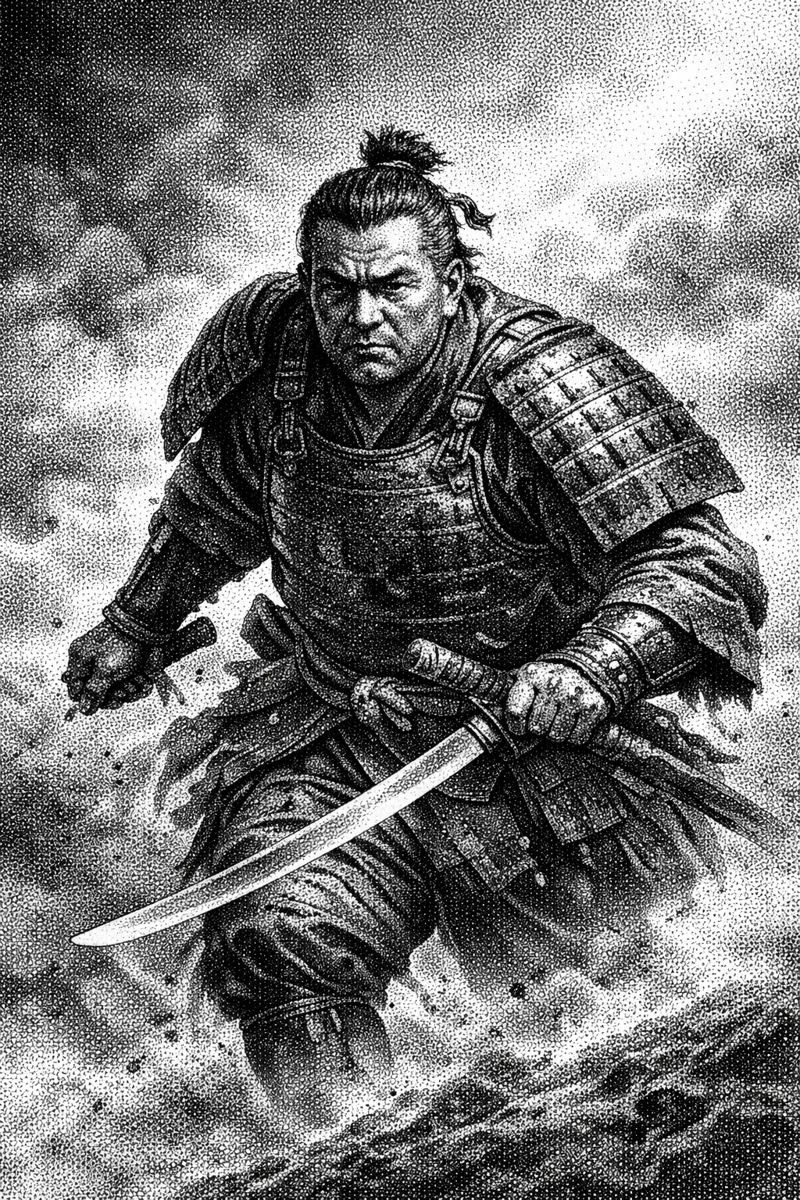

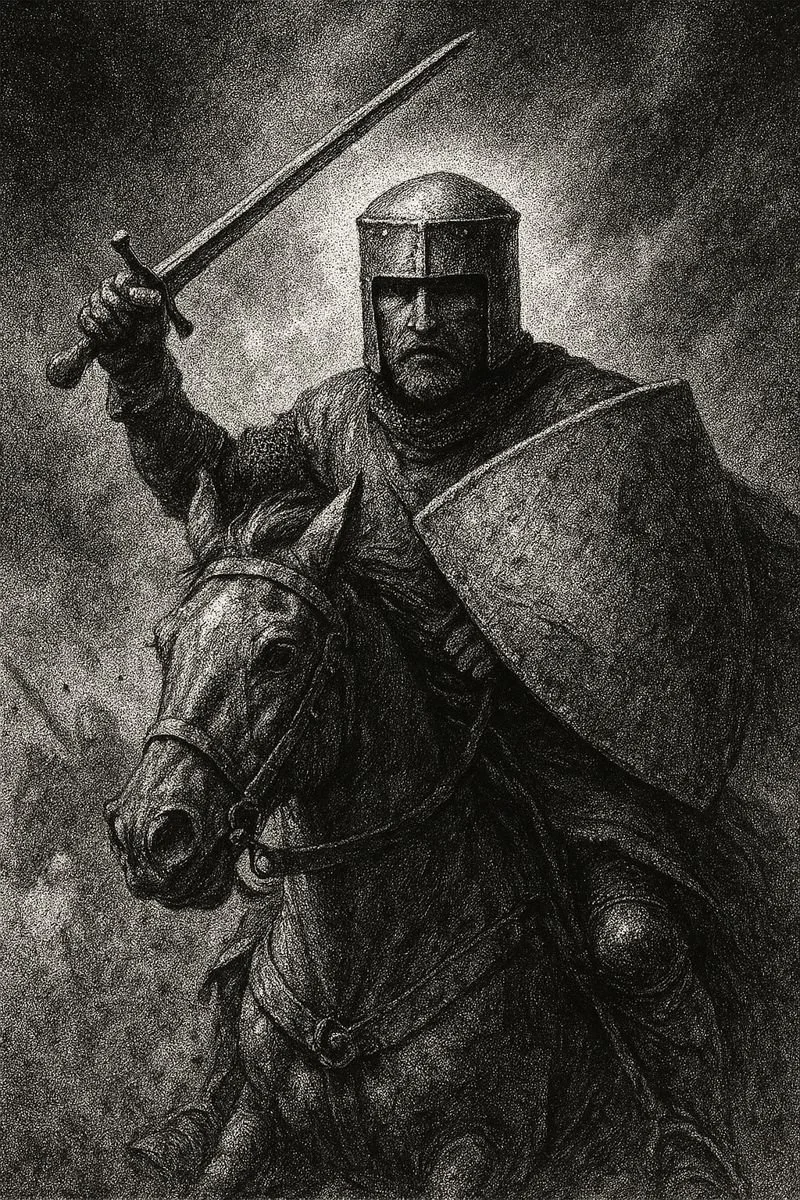

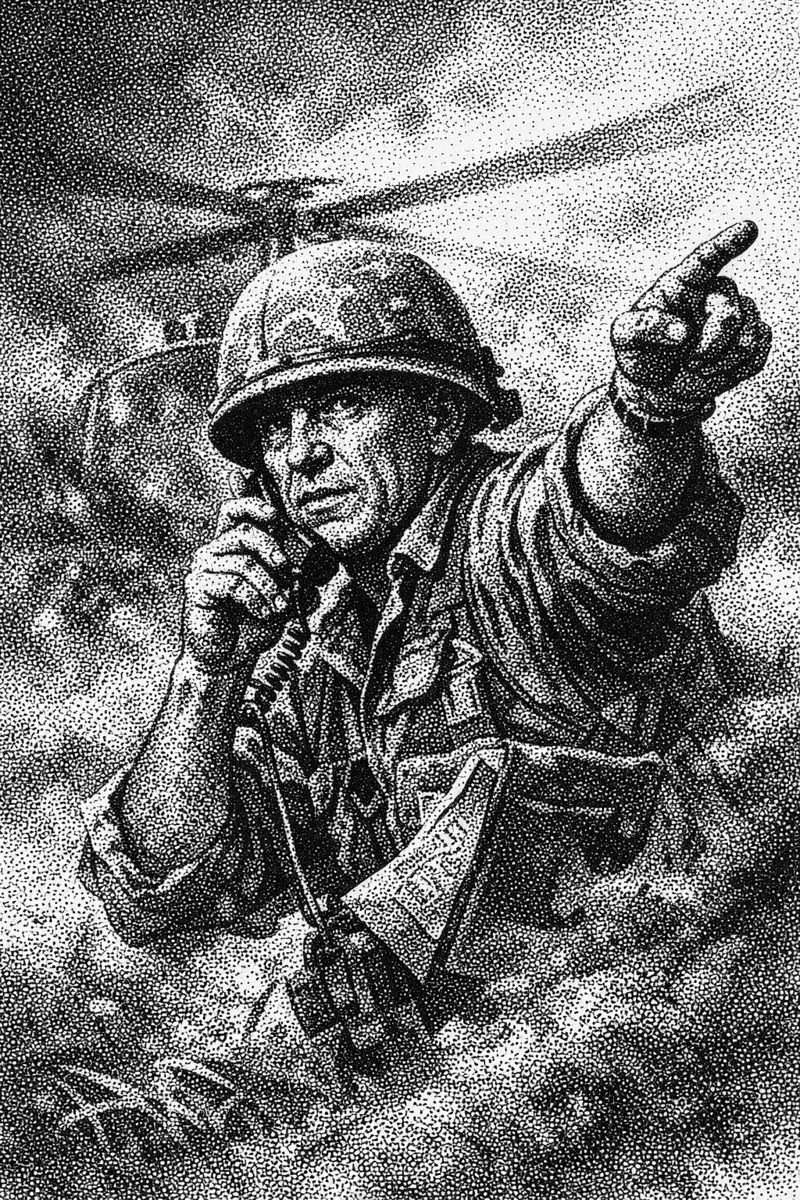
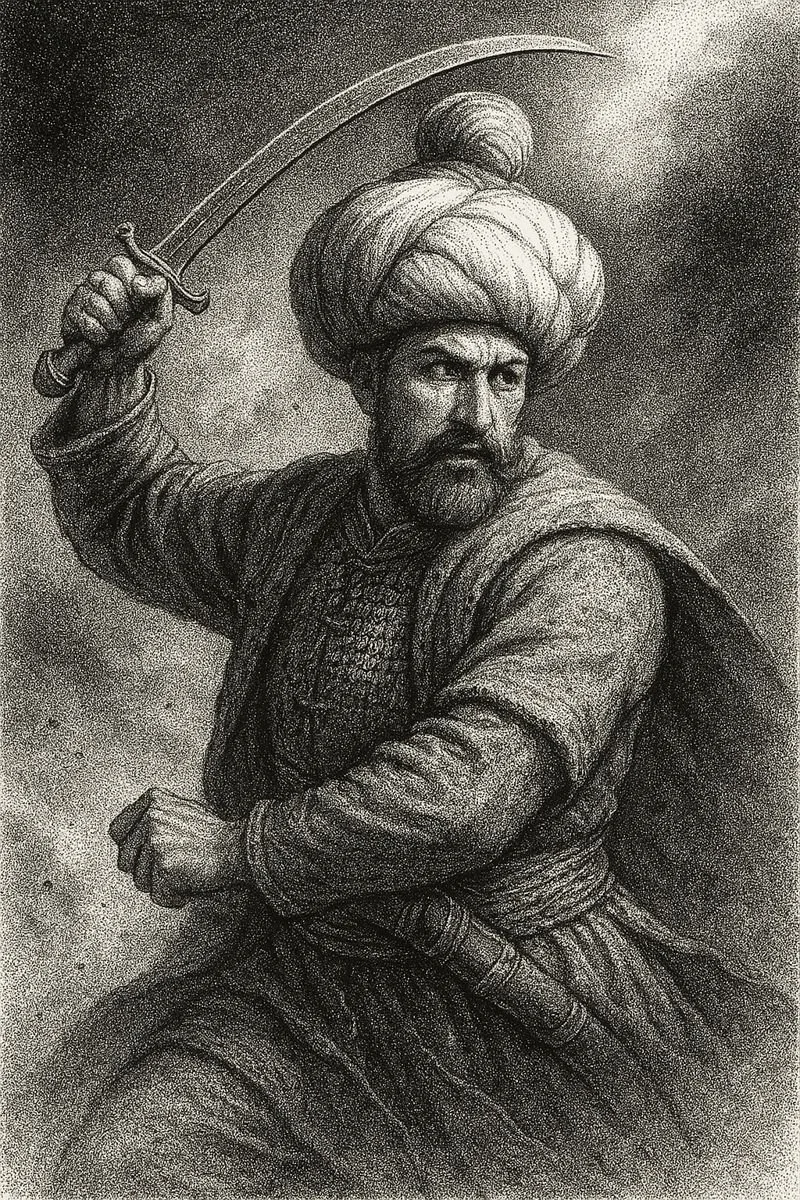
Charles XII of Sweden was a warrior-king who personally led his armies through the Great Northern War, turning early victories into legend through ferocious discipline and reckless courage. His refusal to compromise or retreat ultimately shattered Sweden’s empire, leaving behind a mythic figure admired for bravery and criticized for destroying everything he fought to protect.
Rank - 125